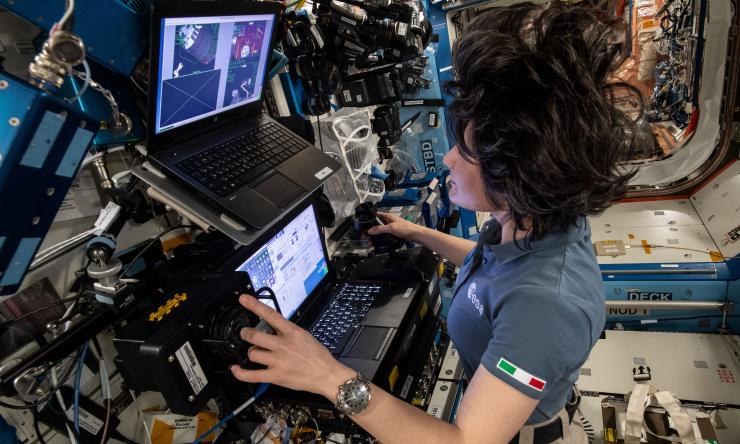TRISH fellowship seeks to train space health scientists
The Translational Research Institute for Space Health (TRISH) at Baylor College of Medicine, with consortium partners California Institute of Technology (Caltech) and Massachusetts Institute of Technology (MIT), announced today a fellowship opportunity for postdoctoral scientists tackling the health challenges of deep space exploration.
TRISH’s postdoctoral fellowship program supports early career scientists pursuing research with the potential to reduce the health risks associated with spaceflight and improve performance. Selected fellows will participate in TRISH’s Academy of Bioastronautics, a mentorship community for space health professionals, and receive a two-year salary stipend. The Institute views its postdoctoral fellowship as a tool to develop the next generation of space biomedical researchers.
“TRISH is a launch pad for exceptional postdoctoral fellows investigating new ways to protect human health,” said Rachael Dempsey, education officer for TRISH. “Space health science leads to innovations that help humans thrive, wherever they explore. Our institute is committed to building a diverse and engaged workforce prepared for humanity’s future in space.”
“America’s future is in space exploration, and it’s time to invest in the scientists that will bring forward ground-breaking advances to enable that exciting future,” said Dr. Dorit Donoviel, TRISH executive director.
TRISH encourages diverse candidates and underrepresented groups to participate in this research solicitation. Historically Black Colleges and Universities, Hispanic Serving Institutions, Tribal Colleges and Universities and small businesses and organizations owned and controlled by socially and economically disadvantaged individuals or women are particularly encouraged to participate in proposals as lead institution or co-institutions.
Proposers should anticipate starting their project by December 2023. Applicants must submit research proposals together with an identified mentor and institution. Funds to support the research must be supplied by the mentor. Independent investigators with existing research grant support may request to be listed as possible mentors for this program by contacting Jean De La Croix Ndong at jndong@nasaprs.com.
The solicitation is available online here. Full proposals submitted through nspires.nasaprs.com will be due on January 26, 2023.
Supported by the NASA Human Research Program, TRISH is an applied space health research catalyst that funds disruptive, high-impact scientific studies and technologies to equip astronauts for deep space exploration. Learn more about TRISH by signing up for its monthly newsletter.







 Credit
Credit


